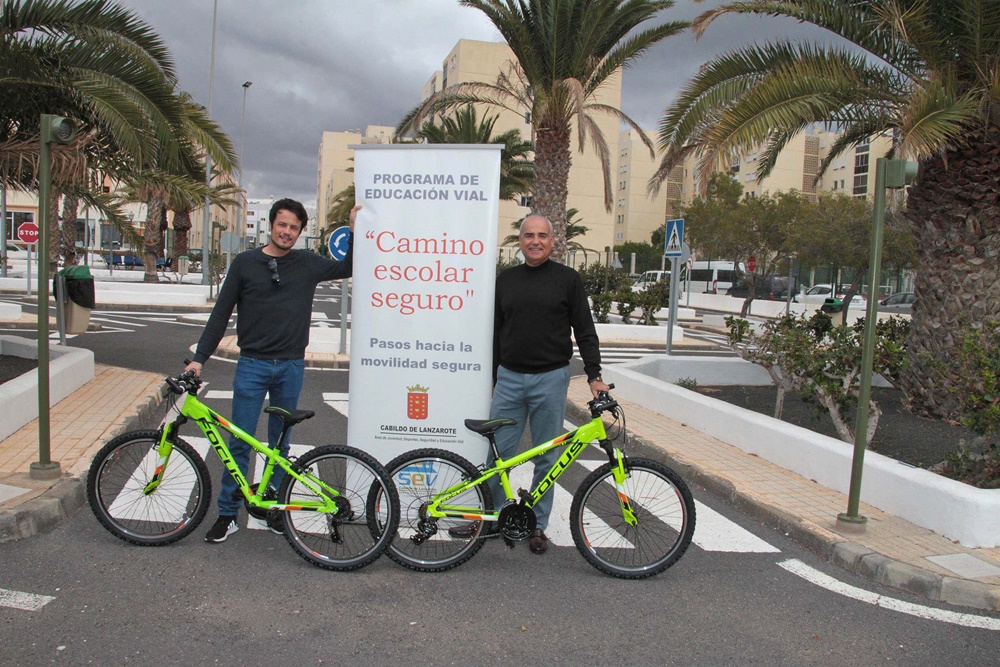The Cabildo of Lanzarote, through the Road Safety and Education Service, coordinated by the councilor Óscar Pérez, has just acquired 15 new bicycles that will be used for the different programming practices that take place on the island, both in the educational field as a social
The bicycles, which have involved an investment of 4,188 euros, have been financed by the Biosphere Reserve Area and will be used by students from all primary schools on the island who participate in the different activities organized by the Cabildo insular on the subject of Healthy and Sustainable Road Education.
“It’s about promoting the use of bicycles in children from 10 to 12 years old as a safe and sustainable means of transport, while reinforcing the concept of personal autonomy,” explains the Biosphere Reserve adviser, Rafael Juan González Robayna.
In fact, from the Cabildo de Lanzarote various programs have been launched such as ‘Safe School Path’ or ‘Students in the road environment’ aimed at promoting the safety and autonomy of students when traveling to school.
“More than 4,000 Primary students participate every year in these activities”, points out González Robayna, “whose objectives are marked in the ‘Lanzarote 2020 Strategy’ and that aim to recover the streets as spaces of coexistence for citizens and encourage reduction of pollutant emissions and noise to create a healthier, safer and more sustainable urban environment. “
Likewise, during the summer months, the Island Council also launches the “Trenzando Huellas” Program, a free activity aimed at children between the ages of six and twelve, for the realization of shared itineraries by bicycle or on foot through Arrecife, with the aim of ensuring that children learn road safety regulations and become aware of the importance of healthy and sustainable mobility.
The Minister of Safety and Road Safety, Óscar Pérez, emphasizes that “the preventive and awareness-raising activities that we carry out from the Road Safety Service are extremely important to raise awareness among the population about traffic accidents that occur on our roads and try to minimize, as much as possible, the serious consequences generated by these incidents. “
“In this way,” adds Perez, “through recreational activities and in a dynamic and participatory way, the students of the island, from an early age, learn to use correctly the bicycle on public roads, how to behave as a pedestrian or the most important concepts of road safety, detecting errors and learning from them





